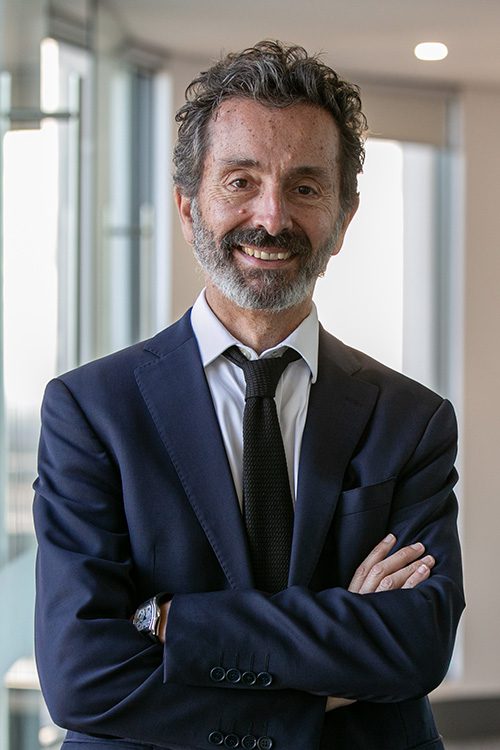It’s estimated that over 134,1741 new cancer cases will be diagnosed this year in Australia.
Translating research into effective treatments for cancer partly relies on two key components: Funding and commercialisation.
This was one of the discussion topics at the recent Health Innovation function, hosted by William Buck Chartered Accountants, Westpac and HWL Ebsworth Lawyers. Despite Australia being home to some of the best research programs and specialists, the challenge of funding and commercialisation continues to be a key issue affecting the industry.
These events are part of a series which are held throughout the year to provide a forum for industry experts and businesses to connect and discuss some of the biggest barriers facing the healthcare sector.
The most recent presentation included a panel discussion with esteemed guest speakers2, giving guests the opportunity to hear first-hand about the ground-breaking work being undertaken at each of these facilities and the ongoing battle for funding. Competition for research funding and resources is tight. In the current environment, government grants and peer reviewed funding schemes have a 15% success rate and are shrinking. With a lack of sustained funding, organisations are being driven to seek independent funding through philanthropic trusts and foundations and public fundraisers.
Whilst government grants are available, the reality is that they only extend so far. The grant process is extensive and often fruitless with medical researchers fighting for a ‘piece of the same pie’. It is unmistakable that incredible work is underway in the development of new, innovative ways to treat cancer, but ultimately the underlying issue of funding remains a road block.
Nations such as the USA and China are seen as the world’s leading scientific countries with proven success with their funding models. So where is Australia going wrong?
Regardless of whether an investor is an individual, business or government department, they face the challenge of determining which research to fund. Investing in researching and development – that is producing and funding scientific discoveries – is expensive and almost impossible to quantify but it allows for invaluable breakthroughs in medicine.
Dr Tim O’Meara spoke about the improvement of patient outcomes that can be contributed as a direct result of medical innovation and discovery. Over 30 years ago, the average life expectancy of a prostate cancer patient beyond the first 5 years was 60%. In 2017 with the advances in technology and science, that number is now more than 95%.
Another key discussion point was around the importance and value of collaboration. This was a strong message throughout the evening and remained top of the agenda for our guest speakers. While research funding is critical, collaboration and interaction between scientific disciplines will be a key driver behind innovation and progress.
Professor Michele Haber from the Children’s Cancer Institute spoke about the success and benefit of industry collaboration. The Zero Childhood Cancer is the result of this and set to be the most ambitious childhood cancer initiative ever undertaken in Australia. It’s a game-changer – 21 entities collectively working together to achieve the same goal.
The program is led by Children’s Cancer Institute and the Kids Cancer Centre at Sydney Children’s Hospital, Randwick bringing together all major clinical and research groups working on childhood cancer to offer Australia’s first ever personalised medicine program for children with high-risk or relapsed cancer.
The program commenced as a pilot study of 12 patients in NSW and has grown by high demand and will see clinical trial launch nationally by the end of 2017. This unique joint endeavour will produce outcomes with commercial and community benefits.
It’s a clear example of the power behind collaboration and removes the challenge of investors having to choose between institutes and instead offers a single nationwide program.
Whilst the panel discussion, led by Mark Calvetti of William Buck and Geoff Bloom of HWL Ebsworth was robust it only touched the surface of the business of cancer research. It is apparent that the business of cancer research conversation has only just begun and further education required in our communities about the business of cancer. Following these events, a working group has been formed to discuss and facilitate future collaboration.
William Buck, HWL Ebsworth Lawyers and Westpac all have advisory teams in the Health industry. Their series of Health in Innovation events are designed to facilitate learning and advance the interests of their Health clients.
1) https://canceraustralia.gov.au/affected-cancer/what-cancer/cancer-australia-statistics
2) The participants on the panel were:
- Scientia Professor Michael Barton OAM, Ingham Institute of Applied Medical Research,
- Professor Michelle Haber AM, Children’s Cancer Institute,
- Virginia Judge, Children’s Medical Research Institute,
- Professor Glenn Marshall, Sydney Children’s Hospital, Randwick,
- Professor John Rasko, The Centenary Institute,
- Associate Professor Alex Swarbrick, Garvan Institute of Medical Research,
- Doctor Tim O’Meara – Regional Research Manager, GE Healthcare Australia & New Zealand and;
- Doctor Anthony Cesare – Leader of Genome Integrity Group, Children’s Medical Research Institute.










